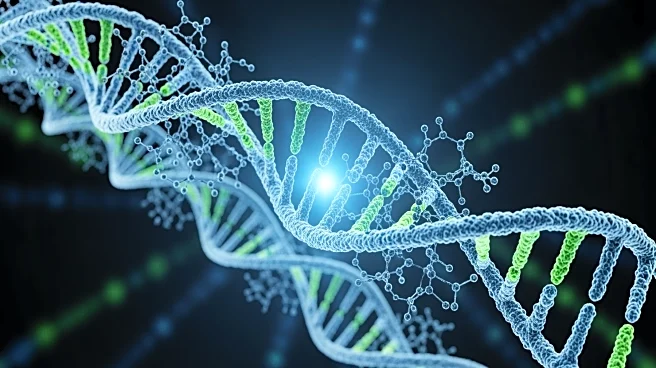What's Happening?
The DNA nanotechnology market is expected to grow significantly, with projections indicating it will reach USD 52.19 billion by 2034, growing at a CAGR of 25.12% from 2025. This growth is driven by advancements
in drug delivery, diagnostics, and data storage, as well as increased investment in biotechnology. North America currently dominates the market, with structural DNA nanotechnology leading in technology segments. The market is characterized by collaborations between private companies and academic institutions, aiming to transform laboratory prototypes into clinical applications.
Why It's Important?
The rapid growth of the DNA nanotechnology market reflects the increasing demand for innovative solutions in healthcare and biotechnology. DNA nanotechnology offers potential breakthroughs in personalized medicine, enabling precise drug delivery and early disease detection. The market's expansion could lead to significant advancements in medical diagnostics and treatment, improving patient outcomes and reducing healthcare costs. As investment in biotechnology continues to rise, the development of DNA nanotechnology could drive economic growth and create new opportunities in the tech and healthcare sectors.
What's Next?
The DNA nanotechnology market is poised for further expansion, with ongoing research and development efforts focused on enhancing the capabilities of DNA-based systems. As the technology matures, it is expected to find applications in environmental monitoring, nanoscale manufacturing, and material assembly. The collaboration between academic institutions and biotech companies will be crucial in advancing the field and bringing new products to market. Regulatory frameworks may evolve to accommodate the unique challenges and opportunities presented by DNA nanotechnology, influencing its adoption and integration into existing healthcare systems.
Beyond the Headlines
The ethical and legal implications of DNA nanotechnology are significant, as the technology raises questions about privacy, data security, and the potential for misuse. As DNA-based systems become more prevalent, there will be a need for robust regulatory oversight to ensure ethical standards are maintained. The technology's ability to transform medicine with molecular accuracy also presents opportunities for addressing global health challenges, such as infectious diseases and cancer, highlighting its potential impact on public health and societal well-being.










